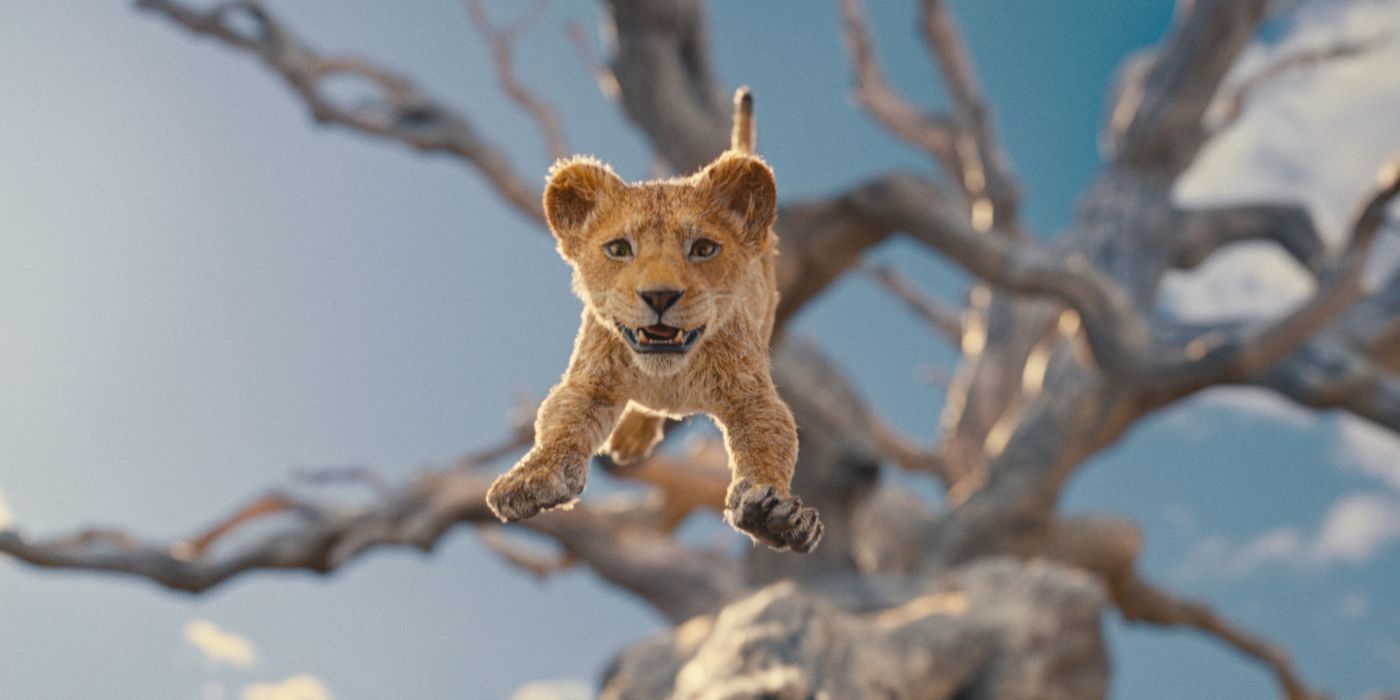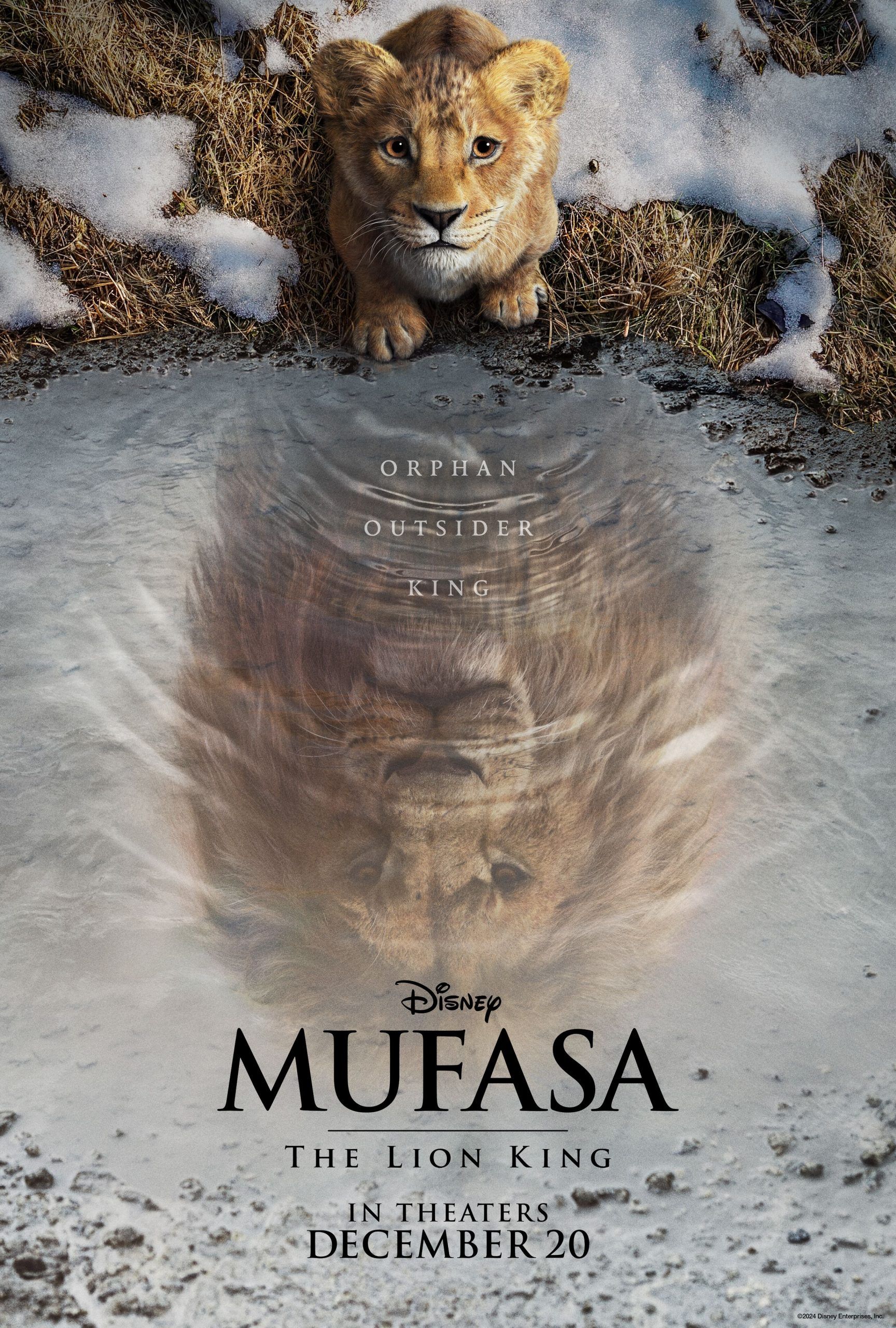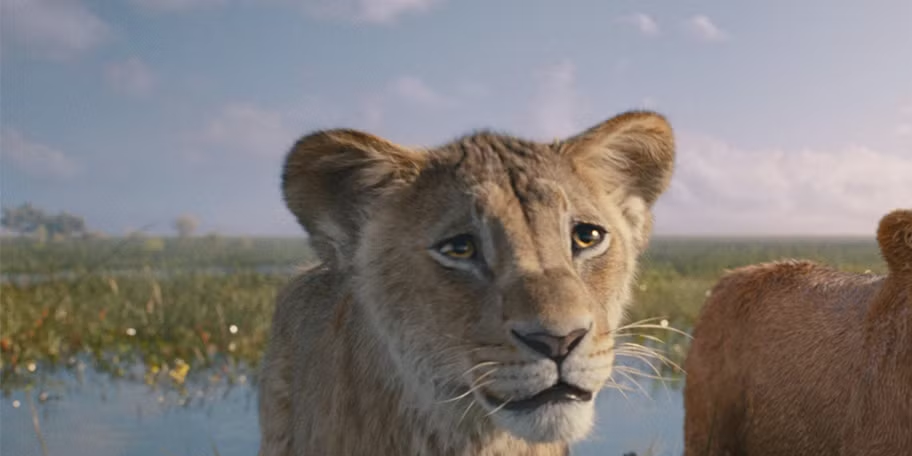Of all the films in Disney’s seemingly never-ending onslaught of live-action remakes, there is no film I dislike more than 2019’s The Lion King. Some would argue the film doesn’t even qualify as live-action, but let us not fall into that debate again. Is it the worst live-action remake the House of Mouse has ever produced? I don’t think so, but it is, bar none, the most maddening. The fact that the phrase “2019’s The Lion King” even exists is a problem in itself, as the 1994 2D-animated original is commonly lauded as a timeless masterpiece that does not in any way warrant a remake. While I’m not saying it’s completely impossible to make a good remake of a timeless movie, the 2019 version’s insistence on being a borderline shot-for-shot recreation without any of the visual splendor the original was known for officially takes the crown away from 1998’s Psycho as the most unnecessary remake ever made.
Regardless of what mine or your thoughts on the 2019 remake may be, the film still went on to make over $1.5 billion at the box office, so a follow-up was all but inevitable. Instead of making a direct sequel and possible adaptation of The Lion King II: Simba’s Pride (one of the better films from Disney’s straight-to-video sequel era), Disney opted to make a prequel following Simba’s (Donald Glover) father with Mufasa: The Lion King. In theory, a far from horrible idea, as the titular lion originally voiced by the late great James Earl Jones is among Disney’s best side characters despite not having much of his past shared directly. Couple the concept with Moonlight filmmaker Barry Jenkins and Moana songwriter Lin-Manuel Miranda, and there’s the possibility that Mufasa: The Lion King can do something its predecessor never could — tell an original story that actually expands on the original instead of rehashing it. Unfortunately, Barry Jenkins’ latest feature film is only partially successful in that goal, as the prequel still struggles to justify its existence in the creative sense.
Though Mufasa: The Lion King is a prequel through and through, its story begins in the direct aftermath of 2019’s The Lion King, where Simba and Nala’s (Beyoncé Knowles-Carter) daughter Kiara (Blue Ivy Carter) is left in the care of Timon (Billy Eichner), Pumba (Seth Rogen), and Rafiki (John Kani), the latter of whom decides to tell Kiara the story of her grandfather. Many years ago, a young Mufasa (Braelyn Rankins) was separated from his parents in a tragic accident, and he was eventually found by a fellow young cub named Taka (Theo Somolu) and adopted into a new family. As the two grow up together, Mufasa (Aaron Pierre) and Taka (Kelvin Harrison Jr.) are forced to leave their home when a sinister white lion called Kiros (Mads Mikkelsen) and his pride tries to take over the Pride Lands by force. Their odyssey will reveal how one lion became a noble king while the other one inherited a scarred legacy.
‘Mufasa: The Lion King’ Is a Moderate Visual Improvement Over the 2019 Film
The common consensus with 2019’s The Lion King is that it’s a haphazard retelling of the original, but at least the visuals are good…I disagree. Personally, I don’t find the remake’s visuals to be appealing at all. Not only do the animals themselves appear entirely lifeless and lack any sort of emotion, but the film is also entirely devoid of all color and depth. Compare the overall look of the 2019 film to the 1994 original and it’s not even close.
Thankfully, I can safely say that Mufasa: The Lion King is a much better movie in the visual department. For starters, the animals we follow in the film are far more expressive than they were before, with their emotions being on full display almost at all times. There’s also a lot more variety in the locales that Mufasa explores, with everything from serene lakes to blizzard-infested mountains. Barry Jenkins even includes something that was sorely missing from Jon Favreau‘s remake with some creatively surreal imagery, particularly during the film’s musical sequences.
Speaking of which, Mufasa: The Lion King is indeed a musical, and Lin-Manuel Miranda has the unenviable task of living up to the iconic songs created by Elton John. While the visuals during these sequences are solid, the songs themselves follow a trend in recent Disney musicals in the sense that all the songs are just…okay. None of the seven original songs in the film are flat-out terrible, but they’re also not particularly memorable either. The one song that stands out is Kiros’ villain song, though not necessarily because the song itself is great. Don’t get me wrong, Mads Mikkelsen singing a Disney villain song is a surefire recipe for success, but the execution here is tonally inconsistent, as it’s played off as a jokey song despite Kiros presumably slaughtering some pivotal characters off-screen afterward.
Aaron Pierre and Kelvin Harrison Jr. are Perfectly Cast in a Frustratingly Cliché Origin Story

Image via Disney
The performances in Mufasa: The Lion King across the board are pretty solid, mostly circumventing the somewhat average ones from 2019’s The Lion King. Aaron Pierre and Kelvin Harrison Jr. in particular are perfectly cast as Mufasa and Taka, respectively, which makes the sadly underwhelming origin story they’re a part of all the more infuriating. The big quest Mufasa: The Lion King asks is how Mufasa became king and how Taka became Scar, and without getting too heavy into spoilers, the answer is a dull, overused, and predictable plot device that really needs to go the way of the dodo. This is also a plot device that sadly relegates Sarabi (Tiffany Boone) to an underdeveloped love interest instead of a dynamic character.
After this plot device is introduced, Taka abruptly goes from a loving brother into a complete homicidal maniac hell-bent on greed and destruction. It’s a shame that Taka’s transition into Scar is so poorly developed because Kelvin Harrison Jr. gives probably my favorite performance in the film. As abrupt as it is, his mustache-twirling charisma is wonderfully authentic to the previous actors who played the character. While Disney’s previous attempts at villain-centric stories have been mixed with Maleficent and Cruella, Scar’s fall to the dark side could have been a more compelling focus if properly contextualized. Mads Mikkelsen is also entertaining as the film’s stand-in villain, but apart from a potentially intriguing throwaway line from Rafiki, Kiros also isn’t given a lot of meaningful development.
Mads Mikkelsen, Kagiso Lediga, Preston Nyman, John Kani, Tiffany Boone, and the other supporting cast members all do a commendable job as characters both new and old. The main exceptions are when the film cuts back to the present as Rafiki continues the story, where Timon and Pumba give some pretty jarring comedic feedback. Their constant breaking of the fourth wall just doesn’t mesh with a supposedly tragic story of a deteriorating brotherly bond. Those fourth wall breaks are some of the most apparent examples of the film’s constant “member berries” that are constantly trying to tug on your nostalgic heartstrings.
‘Mufasa’ Doesn’t Add Necessary Context to ‘The Lion King’
Mufasa: The Lion King really did have the amazing opportunity to expand on two iconic characters. Barry Jenkins makes an admirable effort to genuinely improve on a movie that simply had no reason to exist. Still, while Mufasa might have decent visuals and catchy enough songs, its story is where it and the numerous remakes that preceded it struggle. It’s another prime example that good effects, good acting, and good music aren’t enough when the narrative foundation isn’t strong enough.
However, even through all its faults, Mufasa: The Lion King does feel like a slight shift in the right direction for Disney remakes. The film at least tries to expand upon the source material, which is what the other upcoming remakes really need to do. It’s not enough to have some recognizable characters and some familiar imagery, as it’s the stories behind these films that made them classics to begin with. Fans of the franchise and younger generations will find a lot to like about Mufasa: The Lion King, but it’s hard to imagine it will have a legacy comparable to the original animated classic that started it all.
Mufasa: The Lion King comes to theaters on December 20.




